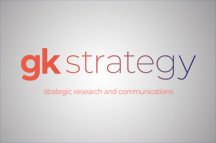Forecasts made by the Office for Budget Responsibility this week have put into sharp relief the scale of the economic challenge that the Government will face as the country emerges from the COVID-19 crisis. An increase in public sector borrowing well above that seen during the financial crisis and a large increase in debt that will endure over the course of this Government’s term in office will force a change in approach to economic policy that would have been unimaginable just weeks ago. However, even in these circumstances, a sharp turn back towards austerity on the public spending side from the Government is unlikely. The question of tax rises will be an important one; an immediate return to pre-COVID business rates, for example, is likely to prove politically difficult to achieve – especially in a sector such as early years, where business rate relief feels hard-fought – so Ministers will be searching for new, sustainable sources of revenue. Far-reaching reviews of the tax system are likely to follow over the coming months.
Could HE student number controls return?
There is speculation that the Government might seek to reintroduce controls on numbers of domestic students admitted in order to minimise the impact from any short-term drop in international student numbers during the COVID crisis. The rationale is that should larger institutions seek to increase their numbers of domestic students to make up for a shortfall in income due to temporary lower numbers of international students, smaller institutions that are more reliant on domestic fee income would find themselves in an unsustainable position if a significant proportion of their intake was lost to others. Some argue that a cap on domestic students would therefore allow any pain to be more evenly distributed and avoid smaller providers going bust. There has been a reluctance to revisit the idea of student number controls since they were abolished by George Osborne as Chancellor several years ago, but they may be seen as a more attractive temporary solution to short-term declines in revenue from other sources than other types of financial assistance that the Government could, in theory, provide.
Starmer appoints junior shadow ministers
Following his election as Labour leader, Keir Starmer has finalised his frontbench team. While many have reported the junior appointments as a return of party’s moderates – with several positions awarded to those associated with the ‘right’ of the party – there are still roles for some figures present during Jeremy Corbyn’s leadership, including in some crucial positions. Margaret Greenwood, who served as Shadow Work and Pensions Secretary under Corbyn, is now Shadow Schools Minister. Although the moderate Toby Perkins takes on responsibility for the party’s apprenticeships policy, Greenwood and Shadow Education Secretary Rebecca Long-Bailey are likely to keep much of Labour’s education policy on the same track. Another interesting appointment is Liz Kendall’s return to the social care brief – the so-called ‘Blairite’ candidate for the leadership against Corbyn in 2015, she also held this position under Ed Miliband’s leadership before returning the backbenches under Corbyn. With the Government still under pressure to develop its position on long-term funding for care, Kendall could shift Labour’s position on this significantly.
Jamie Cater, the brains behind a lot of GK’s thinking, leads our policy work across the entire business, supporting our strategic communications work and providing strategic advice to investors during M&A activity.














